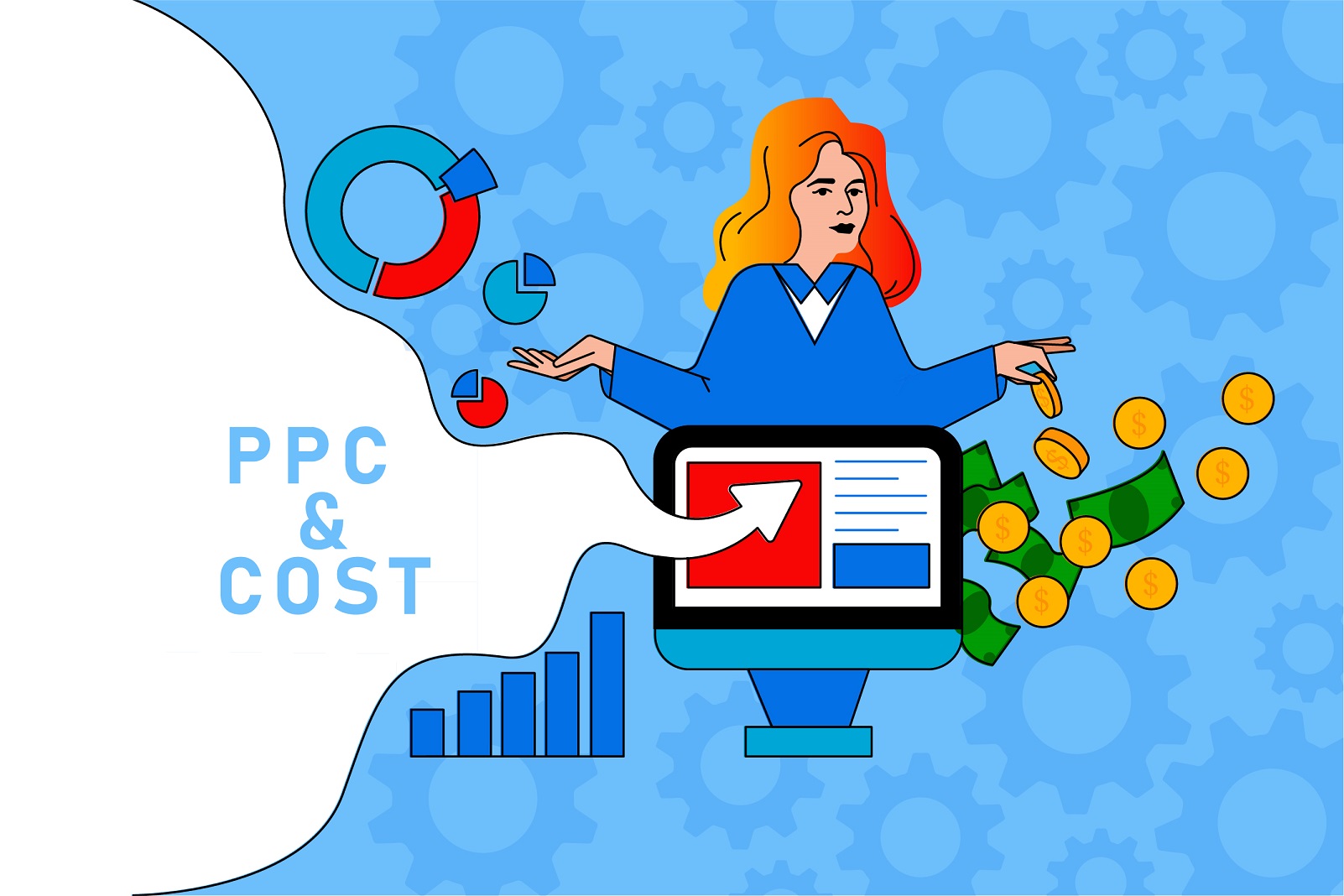

If you are thinking about launching a Pay Per Click (PPC) advertising campaign on Google, Bing, Amazon, Facebook or any other platforms, you might be curious about how much it might cost you. I am Natalia Golenkova, a digital advisor, Google certified specialist, and Google Partner with hands-on experience in managing PPC campaigns. I’ll shed light on all the payment options which are common in the digital marketing industry. After reading this article you will be well prepared for the price negotiation with the marketing agency or marketing specialists of your choice.
PPC is one of the most expensive channels for acquiring prosperous clients online. Businesses use marketing agencies and PPC specialists’ services to avoid newbie pitfalls and to leverage best practices, which are based on deep practical experience in managing PPC and understanding user’s behavior online. In a nutshell, their job is to squeeze maximum results from each campaign, from each ad group, and from each keyword. They polish, refine, and make improvements, day in and day out. Of course, for this, they expect to be paid. You should be aware of three main types of PPC payments:
Budget spent – money paid to platforms like Google, Bing, Amazon, Facebook, and others for running ads. This can be paid directly by a business or by a PPC agency/PPC specialist.
Practical tip: In case your business pays indirectly, there is a risk that you might receive a marked up price. Consider asking for an invoice from the platform itself.
Set up (Launching) fee – money paid to the PPC agency/PPC specialist for creating your campaigns, based on deep analysis, not guesswork. The cost of properly launching a manually built PPC campaign from scratch is heavy. It takes a lot of time and energy to conduct deep research of the industry, competitive environment, and key work analysis.
Management fee – money you pay to the PPC agency/PPC specialist for managing existing PPC campaigns.
PPC audit – money you might be asked to pay if the agency/specialist is taking over accounts that were created by others. Sometimes, the cost of a PPC audit may be equal to launching campaigns from scratch, or even higher.
The Flat Fee. This pricing model was popular in the early days of PPC. It requires a bit of experience to determine the required time and effort a PPC account will need. Paying the same amount regardless of the fluctuating workload might not be a good idea. You may overpay a lot, or in the case of a very competitive PPC market, your PPC agency/ PPC specialist won’t be able to squeeze out everything it can because it involves a lot of ongoing investment of time.
The Hourly Rate. Sometimes this model is called “a recipe for poverty” within the freelance community. You might love this model though, as it’s easy to see a direct correlation between how much work you’re doing (the number of hours you bill), and the cost to them (those hours multiplied by the hourly rate). That said, you’re basically penalizing yourself if you work efficiently and reduce the amount of time you spend on each campaign. Try an online hourly rate calculator to give yourself a ballpark figure if you’re curious.
The Performance-Based Fee. The idea of rewarding a PPC agency/PPC specialist based on their success in building income for the business sounds good in theory. New clients often love offering this to marketing agencies/PPC specialists, but it typically doesn’t translate into a win-win scenario in the real-world. PPC agency/PPC specialists are not in control of all the factors that play a vital role in closing deals nor the ultimate success of a PPC campaign. PPC agency/PPC specialists do not have control over sales teams, customer service, and the inner process of every business from top to bottom. Moreover, marketing agencies/PPC specialists invest a lot in launching PPC campaigns before having a full understanding how much work this account will need.
Percentage of Ad Spend. This is the industry norm. Usually agencies /specialists charge anywhere from 10-20% of the total ad spend. Smaller operations might fall on the lower end with an account minimum to cover costs. Entities within legal, economic, health care, and other industries with high PPC competition and high-pitched CPC might expect higher rates for proven PPC results and dedicated PPC managers.
There’s a myth that this model demotivates the client from increasing their budget. While it’s true that the client has to pay more as they increase their budget, the PPC agency/PPC specialist also has to work harder to find new opportunities and manage larger campaigns. Larger budgets generally involve more work and more PPC competition, which often raises managing PPC to an art form, not a simple trade.
The Hybrid. Some marketers favor a smaller percent of the total spend, plus a base fee for certain tasks, like weekly reports, changing ad copies, adding keywords. Others determine their hourly rate, estimate the hours involved for a particular account, then charge that as a flat fee.
Practical tip: It is important to know who owns a PPC account. The Business itself or the Marketing agency/PPC specialist? Owning a PPC account has several benefits: availability of historic data and metrics of all PPC campaigns, (even unsuccessful campaigns provide a lot of data and metrics that can be leveraged to save a lot of money) and direct access to all original data and metrics on the PPC campaign platform itself (staying on top of original data is always good in case of any misunderstanding). On the other hand, manually launching a PPC account is a lot of work that should be done by an experienced specialist. This means it might be a business situation where a PPC agency/PPC specialist might not be fond of the idea of sharing the results of their hard work with a client who paid only for managing PPC accounts. Consider discussing this and put it in writing.
Theoretically, you can. Just as, for example, you can do business accounting and taxes on your own. The only thing you need is qualification and experience. It is very easy to launch campaigns and spend money on online advertising. This part is a no brainer for anyone. It is much more difficult to do this efficiently and achieve PPC results with a positive return on investment. PPC is the most expensive channel for digital marketing. I would highly recommend giving professional PPC a try with a seasoned agency/specialist first, before that “PPC does not work for my business”. PPC is a great way to accelerate your business and it always works, if the implementation is correct.
There is an abundance of offers in the market. There are really cool professionals in the industry, but there is also a great number of low-quality offers. These tips will help you to find the right PPC marketing agency/ PPC specialist:
If you find a marketing agency/PPC specialist who complies with all the requirements we mentioned it this article, and who promises you launching/managing PPC for free or much cheaper, I recommend that you proceed with extra caution because it might be due to one of the following reasons:
PPC is one of the most expensive channels for acquiring clients online. It is important to understand that it is very easy to spend money on online advertising. This part is a no brainer. It is much more difficult to achieve PPC results with a positive return on investment, which is why finding the right/PPC specialist is so important.
There are several types of PPC payments: budget spent, launching fees, management fees, and audit fees.
One of the most popular PPC pricing models is the percentage model, but that doesn’t automatically mean it works best in every situation.
I would highly recommend giving PPC a try with a professional and seasoned agency/specialist and be wary of PPC management offers which are far below the market average. Pennywise, pound foolish.
Illustraiton by Valeriia Kharlamova